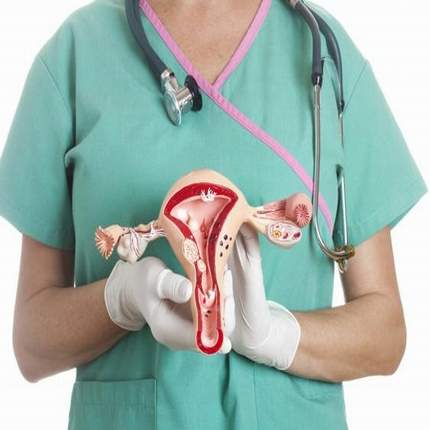
What's in this article?
Endometrial Cancer Overview?
Endometrial cancer starts in the endometrium, the inner lining of the uterus (womb). The picture below shows where the uterus is located.
Causes of Endometrial Cancer
Endometrial cancer is the most common type of uterine cancer. The exact cause of endometrial cancer is unknown. An increased level of estrogen may play a role. Estrogen helps stimulate the buildup of the lining of the uterus. This can lead to overgrowth of the endometrium and cancer.
Most cases of endometrial cancer occur between the ages of 60 and 70. A few cases may occur before age 40.
The following factors related to your hormones increase your risk of endometrial cancer:
- Estrogen replacement therapy without the use of progesterone
- History of endometrial polyps
- Infrequent periods
- Never being pregnant
- Obesity
- Polycystic ovary syndrome (PCOS)
- Starting menstruation at an early age (before age 12)
- Starting menopause after age 50
- Tamoxifen, a drug used for breast cancer treatment
Women with the following conditions also seem to be at a higher risk of endometrial cancer:
- Colon or breast cancer
- Diabetes
- Gallbladder disease
- High blood pressure
Symptoms of Endometrial Cancer
Signs and symptoms of endometrial cancer may include:
- Vaginal bleeding after menopause
- Bleeding between periods
- An abnormal, watery or blood-tinged discharge from your vagina
- Pelvic pain
- Pain during intercourse
Treatment for Endometrial Cancer
Treatment options include surgery, radiation therapy, and chemotherapy.
Surgery to remove the uterus (hysterectomy) may be done in women with early stage 1 cancer. The doctor may also recommend removing the tubes and ovaries.
Surgery combined with radiation therapy is another treatment option. It is often used for women with
- Stage 1 disease that has a high chance of returning, has spread to the lymph nodes, or is a grade 2 or 3.
- Stage 2 disease.
Chemotherapy or hormonal therapy may be considered in some cases, most often for those with stage 3 and 4 disease.





